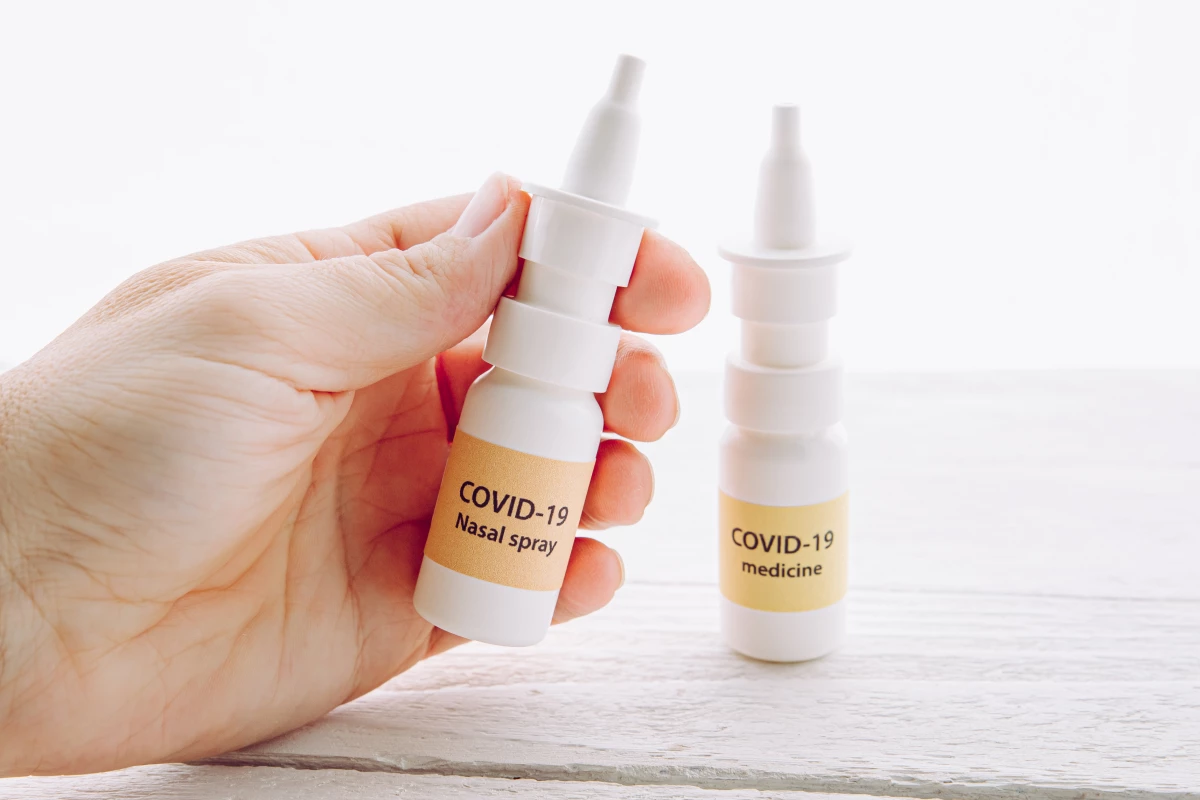An innovative clinical trial is set to commence in Australia testing whether a common blood thinning drug can prevent SARS-CoV-2 infection. The drug is administered by nasal spray and researchers believe it can block the virus from initially infecting cells in the nose.
The nasal spray is based on a hypothesis suggesting initial SARS-CoV-2 infections take hold in the nose via a molecule called heparan sulfate. The virus’s infamous spike protein binds to heparan sulfate which enhances its ability to subsequently interact with ACE2 receptors and infect human cells.
Heparin is a widely used anti-coagulant, first discovered over a century ago and safely used as a treatment for heart attacks and blood clots. Gary Anderson, from the University of Melbourne’s Lung Health Research Centre, says early research has indicated heparin is so molecularly similar to heparan sulfate that it can neutralize SARS-CoV-2 particles when administered directly to cells in the nose.
“Heparin – the active ingredient in our spray – has a structure that is very similar to heparan sulphate, so it behaves as a ‘decoy’ and can rapidly wrap around the virus’s spike protein like a python, preventing it from infecting you or spreading the virus to others,” explains Anderson.
The large clinical trial testing the nasal spray will commence soon in the Australian state of Victoria. The plan is to distribute the spray to 400 houses within 24 hours of a confirmed case in each household. The trial will be blinded and placebo controlled, with each participant directed to take two puffs of the spray three times a day.
The goal will be to investigate whether the nasal spray prevents COVID-19 in close contacts of confirmed cases. Active COVID-19 cases will also be given the spray as the researchers are also looking at whether heparin reduces the infectiousness of a confirmed case.
The researchers say administering heparin as a nasal spray should not lead to broader blood thinning as it doesn’t reach the bloodstream when administered through the nose. Anderson also notes this prophylactic nasal spray should be effective against all viral variants.
"Importantly, this nasal spray should prove effective for all COVID-19 variants because the heparan sulphate binding site is essential for infection, and is likely to be preserved in new variants,” says Anderson. “Heparin binds avidly to the Omicron variant currently sweeping through the country.”
The trial is set to run for six months, so it won’t be known how well it works until the second half of 2022. However, if it does prove to be effective, it could be rolled out quickly as the drug is already approved for human use, doesn’t require refrigeration, and is easily distributed in plastic vials.
The treatment is not being proposed as an alternative to vaccination. Instead, the researchers suggest it will hopefully help protect those most vulnerable to severe COVID-19 and prevent onward transmission in those experiencing vaccine-breakthrough infections.
“If the treatment is proven to work in the setting of preventing progression and spread within homes, it would support using the spray to protect highly vulnerable populations such as the elderly, pregnant women, and those with weak immune systems,” says Anderson. “It may also prove useful to protect our front-line health care workers from illness and to preserve capacity in the health care system.”
Source: University of Melbourne




